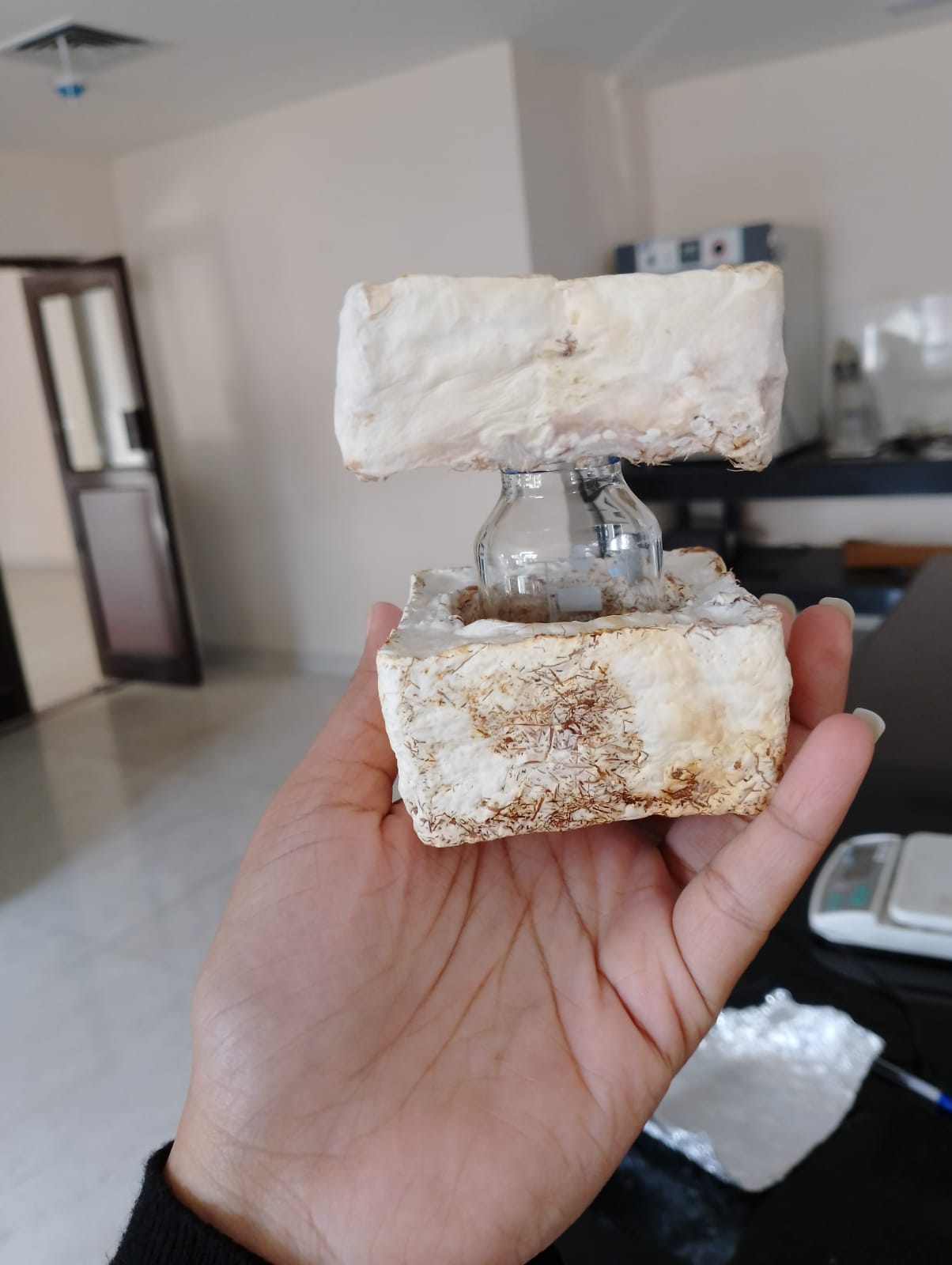
In the quiet bamboo-laced settings of Assam, a biotech breakthrough is taking root—literally.
MYSUFU Technologies Private Limited, a Guwahati-based startup, is leading the use of mycelium, the root-like structure of fungi, to create biodegradable replacements to environmentally harmful materials like plastic, thermocol, and synthetic leather.
Started by Naseer Mir, an M.Tech graduate from IIT Guwahati’s School of Agro and Startup Consultant, at the front of India’s mycelium revolution. The company’s novelty lies in growing mycelium-based composites using locally sourced agricultural waste, transforming residue from crops like paddy, mustard, and banana fiber into strong, compostable materials.
In a country facing with plastic pollution and overflowing landfills, mycelium-based products offer a sustainable, scalable, and circular solution.
The material is lightweight, robust, indeed fire-resistant, and completely biodegradable, making it ideal for eco-packaging, furniture, construction panels, and even fashion accessories. The potential applications span industries, from FMCG and logistics to luxury retail and green building materials.

MYSUFU's innovation has acknowledged critical credit. It was awarded Rs. 10 lakh in funding under the NEC Ignite Grant through Bionest at IIT Guwahati, allowing the startup to move from prototype development to pilot-scale production.
The company’s attainments have also been spotlighted on national platforms—winning at the PanIIT World of Technologies and being featured at Global Bio India 2024, one of the country's premier biotech exhibitions.
But what truly sets MYSUFU apart is its community-first, decentralized production model. Instead of a centralised factory setup, the startup endorses village-level production hubs, often run by rural women, enabling grassroots ownership and income generation.
“We don't just want to build a product—we want to build a regenerative system,” says Mir. “One where rural communities are not just participants but innovators and co-owners of the solution.”
This model taps into Northeast India’s rich biodiversity, agricultural diversity, and traditional ecological knowledge, locating the region as a potential biotech hub for sustainable innovation.
MYSUFU aims to build a network of low-carbon micro-industries, where each village unit grows fungal materials using local biomass, backing to both climate action and rural livings.
Despite the momentum, Mir points out that Assam’s startup ecosystem is still emerging.
“We’re at Startup 1.0—focused on registration numbers. What we need is Startup 2.0—deeptech, sustainability, and long-term value creation.”
He supported for patient capital, domain-focused incubators, and regional innovation hubs that reflect the unique potential of the Northeast.
As India pushes towards a circular economy and net-zero goals, MYSUFU’s fungi-powered materials represent more than a scientific novelty. They offer a design for contextual, inclusive, and regenerative entrepreneurship—one where fungi not only substitute plastic, but also fuel rural development and ecological soothing.